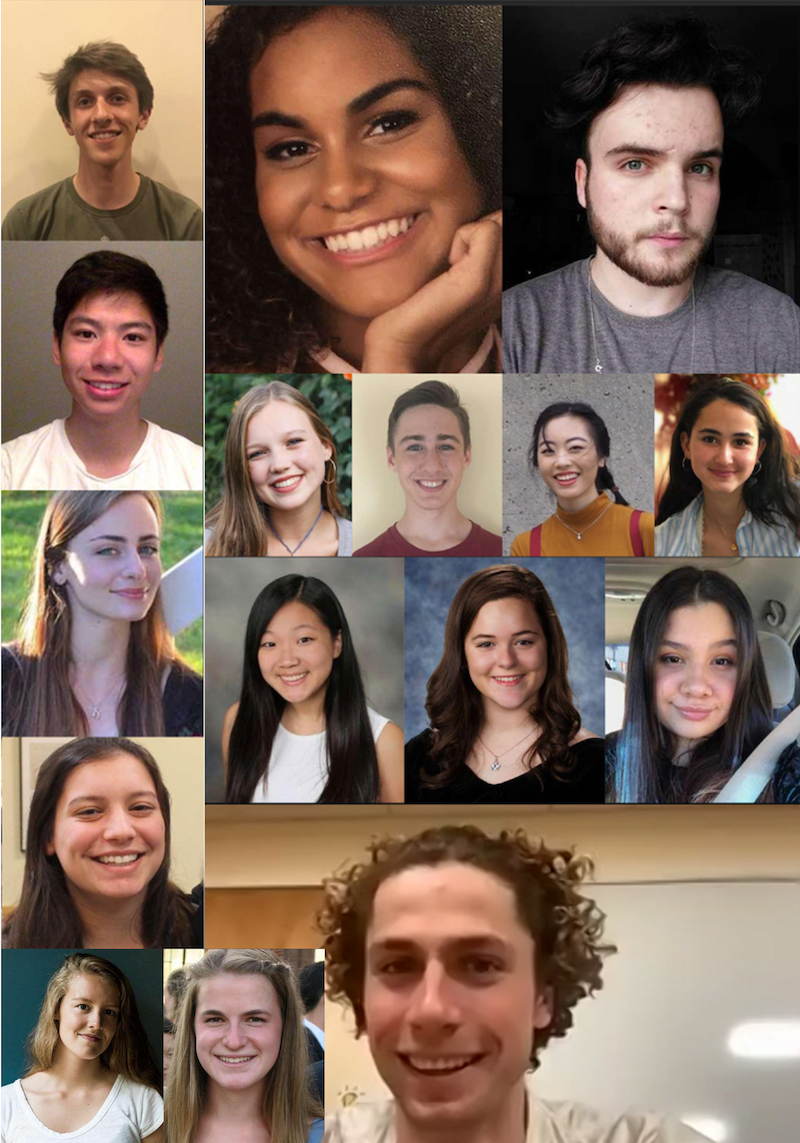Bowdoin's LaVigne Named Frontiers of Science Fellow
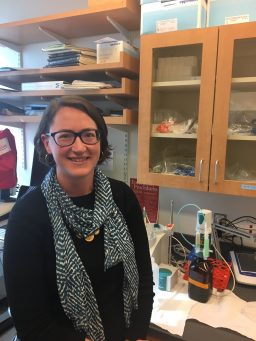
This was not the case, however, on a recent trip to the National Academy of Sciences in Irvine, Califorinia, where LaVigne attended an international symposium put together under the auspices of the NAS. As a newly honored Kavli Frontiers in Science Fellow, LaVigne found herself in the company of other young scientists discussing a lot more than oceanography. This particular symposium featured about fifty scientists from the US and Israel talking about a range of topics, from artificial organs and bioprinting, to numbers and fractals, to gravitational wave astronomy, and more.
"This symposium was a wonderful experience and so different to what I'm used to," said LeVigne, "because I'm not normally exposed to such a range of areas. I got to interact with people making new discoveries and winning nobel prizes in areas I don't normally think about."
The aim of the symposium, she said, was to encourage the exchange of ideas between exceptional young scientists engaged in cutting edge research. "This kind of collaboration can shed different perspectives on scientific problems, which might lead to new ideas and approaches that wouldn’t necessarily have been thought of at a traditional conference. Maybe an oceanographer, like me, could end up making a contribution to the study of human evolution, for example?"
While at the symposium, LaVigne gave a poster presentation based on some of the research she and her students have been doing since 2014 with the help of a National Science Foundation grant (Award Number OCE-1420984.) LaVigne herself has been researching the area since 2010, when she was a post-doctoral student. "We’re analyzing deep sea, bamboo coral samples collected off the West Coast for geochemical fingerprints which can help us reconstruct past climate change. These corals live for a long time, and they can shed light on how conditions in the ocean have changed over the years." LaVigne said understanding deep sea coral reefs is important because they are crucial to the ecosystem and to the fisheries they support.



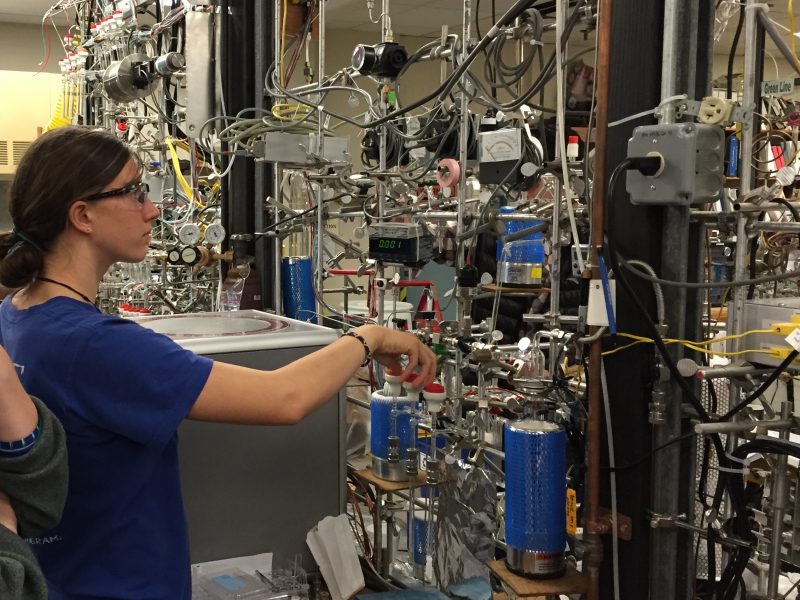
LaVigne is the senior author on two papers submitted for publication. The lead authors of both were student researchers Megan Frenkel (Freiberger) '16 and Gabriela Serrato Marks '15, both of whom made new discoveries while researching their Honors theses. "In one of the papers Meg used radiocarbon dating techniques to reconstruct how corals grow, and she found out that the growth rates of these corals slow down as they get larger. Previously it had been thought they grew at a constant rate. The co-author was Hannah Miller '17, who did a lot of the radiocarbon analyses with Meg."
The other paper looks at the state of the ocean, said LaVigne, particularly the composition of nutrients in deep sea conditions. "Gabi did some crucial work here, identifying rapid changes in deep water conditions on the same time-scale as surface ocean climate transitions—again, a new discovery." This is important, said LaVigne, because it tells us that deep sea conditions can be much more variable that previously thought, and more affected by the climate change that occurs at the surface.
Both Frenkel and Serrato Marks are currently enrolled in PhD programs—Frenkel at Columbia and Serrato Marks at the MIT/Woods Hole Oceanographic Institute joint program. Furthermore, said LaVigne, they both hold graduate research fellowships from the National Science Foundation.
"It was a wonderful feeling presenting this research," said LaVigne, "knowing that the work of Bowdoin undergraduates was being highlighted at an international symposium of highly regarded young scientists."
Related Stories
-
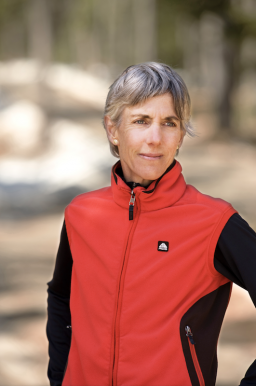
-
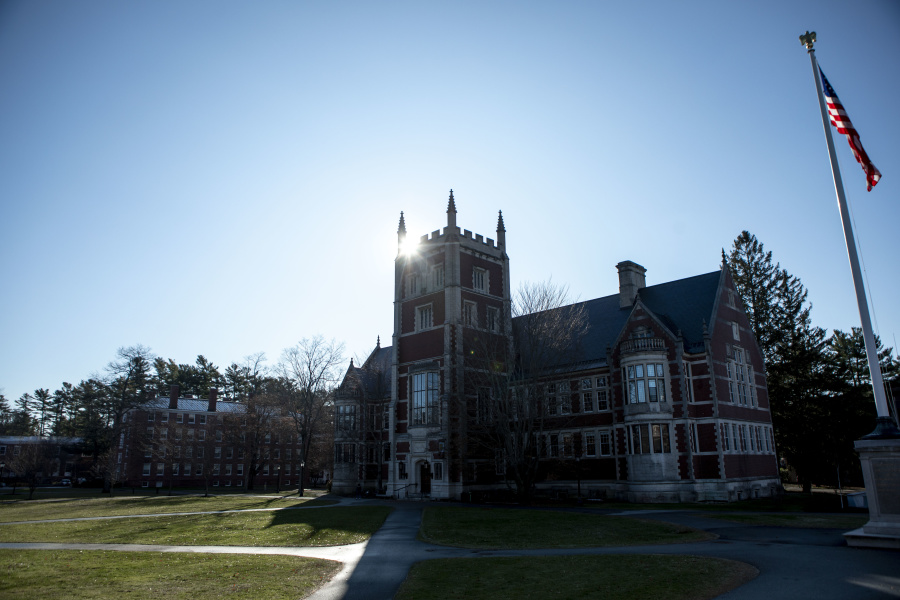
-
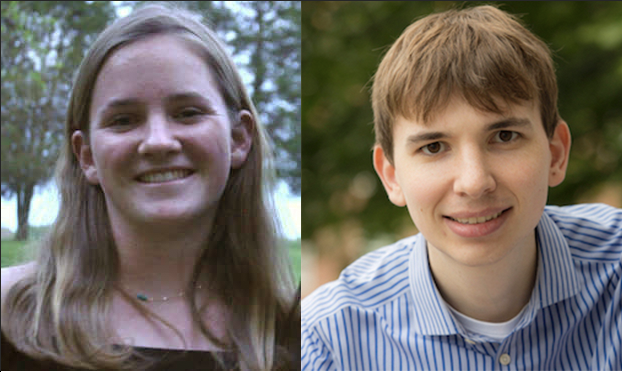 August 02, 2021Assistant Professor of Computer Science Sean Barker and summertime Gibbons fellow Charlotte Gehrs ’24 are fine-tuning a tool developed in Barker's lab that could help homes be more energy efficient.
August 02, 2021Assistant Professor of Computer Science Sean Barker and summertime Gibbons fellow Charlotte Gehrs ’24 are fine-tuning a tool developed in Barker's lab that could help homes be more energy efficient. -
